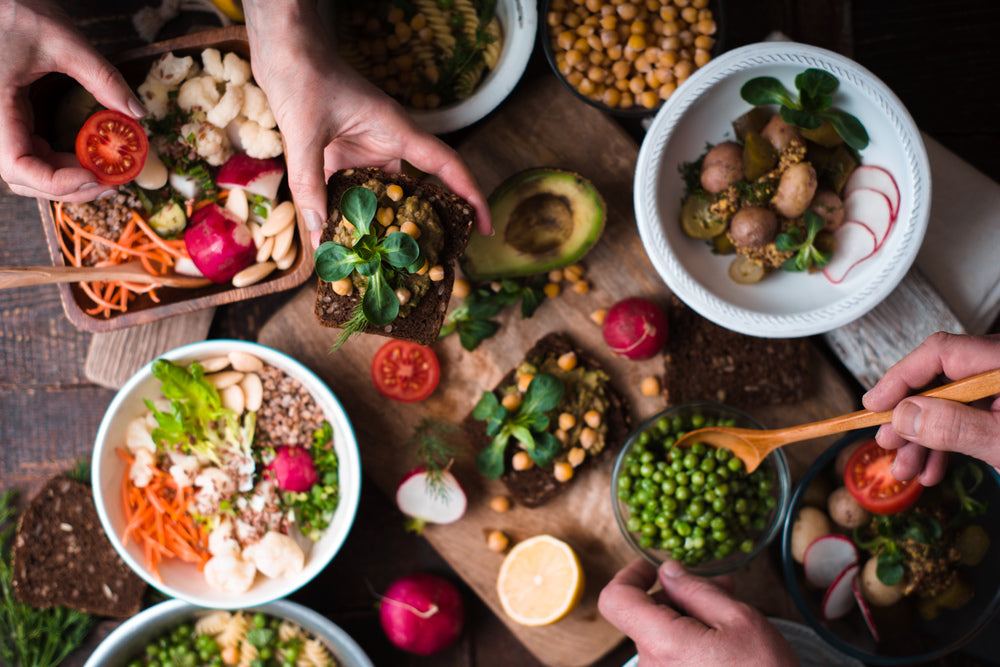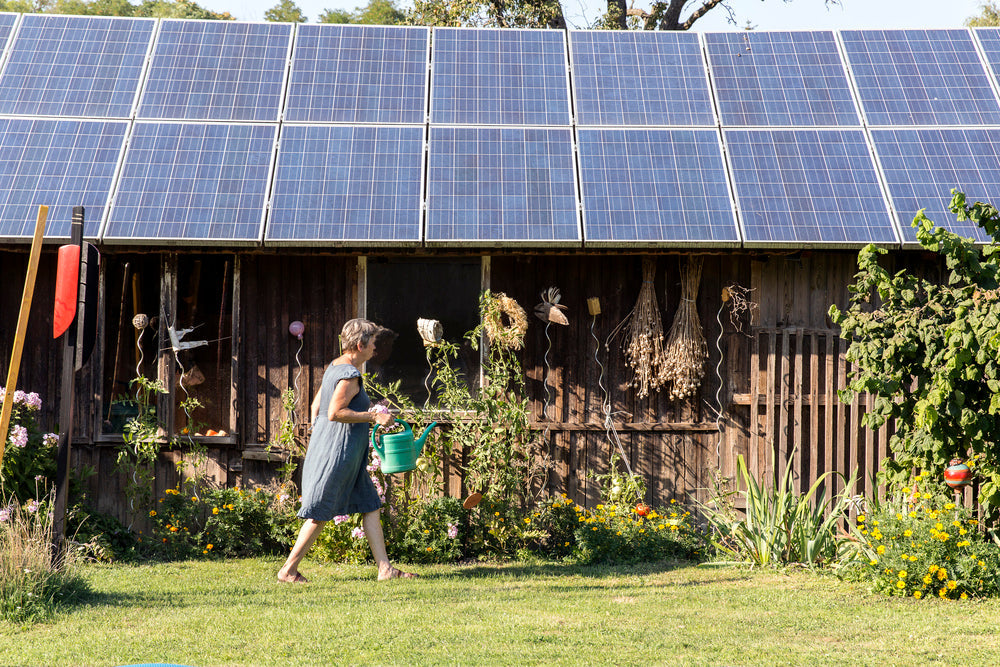There’s a lot of buzz around eating plant-based these days—and it’s not just coming from the blender. From oat milk lattes to meatless Mondays, more people are realizing that what’s on our plate has a big impact on the planet. But here’s the good news: you don’t need to go full vegan to make a meaningful difference.
Whether you’re a curious flexitarian, a veggie-loving veteran, or someone just trying to add a little more kale to your chaos, eating plant-powered is one of the most delicious ways to shrink your carbon footprint. And yes, it can still include tacos, pizza, and dessert.
Let’s dig into the juicy details of why plant-based eating matters—and how to do it without sacrificing flavor, fun, or convenience.
Why Eating Plants Helps the Planet
Food production accounts for over a quarter of global greenhouse gas emissions, and animal agriculture is a major contributor. Raising livestock requires massive amounts of land, water, and feed, not to mention the methane emissions from ruminants like cows (yep, cow burps are a climate issue now).
On the flip side, plant-based foods generally require fewer resources and generate less pollution. According to a 2023 Oxford study, shifting to a low-meat or vegetarian diet can reduce your food-related emissions by up to 75%.
And beyond the climate impact, reducing meat and dairy consumption can help conserve water, preserve biodiversity, and reduce deforestation. So next time you opt for tofu over chicken, just know: you're basically giving the Earth a high five.

It Doesn’t Have to Be All or Nothing
We get it—changing your eating habits can feel overwhelming. But you don’t have to go cold turkey (pun very much intended) on animal products to make a difference. Even a few meat-free meals a week can lower your environmental impact.
The beauty of plant-based eating is its flexibility. You can start with a single swap—try lentils instead of ground beef, oat milk in your smoothie, or a jackfruit BBQ sandwich that’ll have you doing a double take. Small changes still count.
And if you’re wondering whether the occasional cheese board cancels out your efforts—it doesn’t. Progress, not perfection, is the real goal here.
The Local Angle: Support Farmers, Not Freezers
One of the best ways to green your plate is to eat local and seasonal produce. When your strawberries don’t have to fly in from another continent, your meal instantly gets a lower carbon footprint.
Shopping at your local farmer’s market is a great way to do this. Bonus: you’ll support small-scale growers, discover weirdly wonderful veggies (hello, purple cauliflower), and get tips straight from the source. And with a little planning, you can stock up plastic-free—just bring your own produce bags and stash everything in a reusable Wet Bag for easy carrying.
Even grocery store trips can go low-waste when you hit the bulk bins with a set of Reusable Produce Bags or Snack Bags. It's like eco-points for grocery shopping.

Cooking with Color (and Creativity)
If the idea of plant-based eating conjures images of sad iceberg salads and plain rice, allow us to reintroduce you to the joy of vegetables. Because here’s the thing: plants are delicious when you let them shine.
Start with what you love—whether that’s tacos, pasta, stir-fry, or burgers—and find a plant-based twist. Think black bean and sweet potato tacos, creamy cashew alfredo, tofu banh mi, or mushroom-lentil shepherd’s pie. The possibilities are endless (and endlessly tasty).
The key is building flavor with herbs, spices, marinades, and sauces. Plants love a little zhuzh. So do your taste buds.
Your Handy Guide: Easy Eco-Friendly Swaps for Your Plate
If you’re new to plant-powered eating, here are a few simple swaps that’ll ease you into it without scaring off your inner foodie:
-
Ground beef → lentils, mushrooms, walnuts, or plant-based crumbles
-
Milk → oat, almond, soy, or cashew milk
-
Eggs → flax eggs, mashed banana, or applesauce in baking
-
Cheese → nutritional yeast, cashew cheese, or store-bought vegan cheese (lots of great options now!)
-
Chicken or pork → tofu, tempeh, seitan, or pulled jackfruit
Try swapping one ingredient in a familiar recipe and see how it goes. You might surprise yourself.
Ditch the Packaging, Keep the Flavor
A lot of pre-packaged plant-based meals still come wrapped in plastic and excess packaging. If you're trying to reduce waste along with meat, try cooking from scratch when possible—or choose brands that use compostable or recyclable materials.
Meal prepping helps too. Make a big batch of chili, soup, or roasted veggies and portion it out into reusable containers. We love storing cut fruit, meal kits, and sauces in Bowl Covers or reusable jars instead of plastic wrap.
And for on-the-go snacking? Toss a sandwich or apple slices into a silicone snack bag and skip the cling wrap entirely. You’ll save money, reduce waste, and look chic while doing it.

Eating Together = Better Together
Food is personal. It’s cultural, emotional, and often social—which means plant-based eating doesn’t have to be a solo journey. Invite your friends over for a meatless Monday potluck. Try a new vegan spot in your neighborhood. Challenge your partner to a plant-based cook-off. (Winner gets bragging rights and first dibs on the leftovers.)
When you make it fun, inclusive, and low-pressure, people are more likely to stick with it—and you’ll build community while reducing your environmental impact.
Plus, sharing plant-based meals is a great way to bust the myth that it’s “rabbit food.” Spoiler: it’s not. It’s flavorful, satisfying, and often way more inventive than a chicken breast and side salad.
Food Waste Is the Silent Carbon Bomb
Even the greenest meal loses some of its eco-magic if it ends up in the trash. Food waste is a major contributor to climate change, releasing methane in landfills and wasting all the energy and resources it took to grow, harvest, and transport that food in the first place.
To fight food waste, try meal planning, freezing leftovers, and using up your odds and ends in scrappy recipes like soups, stir-fries, or smoothies. Got wilted greens or banana peels? Compost them! (More on that in Blog #6.)
At Marley’s Monsters HQ, we’re big fans of keeping a Wet Bag in the kitchen for collecting scraps before they head to the compost bin. It’s cute, compact, and easy to toss in the wash when needed.
Don’t Let Perfection Be the Enemy of a Plant-Based Plate
At the end of the day, you don’t have to be perfect to make a difference. Choosing plant-powered meals, supporting local growers, minimizing food waste, and using reusables are all meaningful steps.
And the best part? These changes often lead to better health, tastier meals, and stronger connections—with your community, your food, and the planet.
So cheers to more plants on your plate, fewer emissions in the air, and a lifestyle that’s just as nourishing as it is sustainable.
Want to make it even easier? Check out our collection of Reusable Kitchen Essentials to help you store, prep, and snack without the waste. Your veggies—and the Earth—will thank you.



